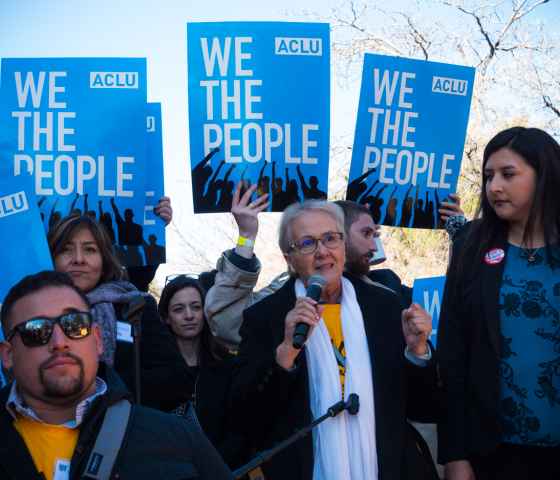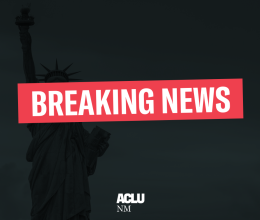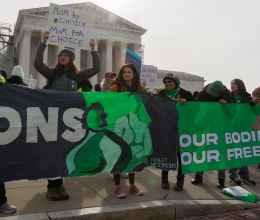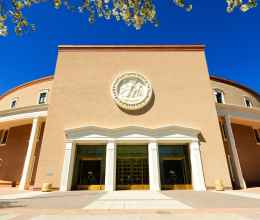SANTA FE, NM - Today, the American Civil Liberties Union (ACLU) of New Mexico praised Governor Michelle Lujan Grisham for signing legislation that significantly advances the cause of civil liberties in New Mexico, especially in the areas of criminal justice reform, reproductive freedom, and immigrant rights. Together, these new laws comprise one of the state’s largest leaps forward for the causes of justice and liberty in a generation.
“The groundbreaking legislation signed by the governor this session offers bold and innovative solutions to some of our state’s most pressing problems,” said ACLU of New Mexico Executive Director Peter Simonson. “Governor Lujan Grisham should be especially commended for signing bills that take a smarter approach to tackling crime and public safety issues in our state. For too long our leadership has been stuck in the past, rehashing the same tired “tough on crime” policies that waste precious resources while failing to make our families safer.”
Among the most important civil liberties bills signed by the governor this session include:
- HB 370, the Criminal Record Expungement Act, which allows some conviction records to be sealed providing better access to safe housing, employment, and educational opportunities — all proven factors in reducing recidivism.
- HB 342, a comprehensive criminal justice reform bill focusing on accountability and treatment to both prevent crime and successfully reintegrate people back into society.
- HB 364, a bill that limits the use of solitary confinement on juveniles, people living with mental illness, and pregnant women.
- SB 96, “ban the box” legislation that prohibits employers from requiring applicants to disclose their conviction history on the initial job application.
- SB 323, a bill that decriminalizes marijuana by reducing the penalty for possession of small quantities to a 50 dollar fine with no jail time.
- SB 199, the Electronic Communications Privacy Act, which requires law enforcement to obtain a warrant before viewing sensitive information held on personal electronic devices.
- HB 89, which improves access to contraception by requiring insurance companies to cover a full range of options for men and women, and provide up to a six-month supply of contraception at once.
- SB 278, a bill that reduces unnecessary barriers for New Mexicans seeking to obtain a driver’s license, including eliminating a pointless fingerprinting requirement.
“This historic progress would have been impossible without the hundreds of New Mexicans who advocated tirelessly through every step of the legislative process,” said Simonson. “The ACLU of New Mexico was proud to work with colleagues in the New Mexico SAFE coalition to ensure that criminal justice bills focused on building real public safety by tackling the root causes of crime and recidivism. We were also honored to have worked alongside the crime survivors and formerly incarcerated New Mexicans who are the backbone of the ACLU of New Mexico Smart Justice Campaign, part of a nationwide movement to reduce mass incarceration and eliminate racial discrimination in the criminal legal system.”
One important omission from this list is HB 564, a probation and parole reform bill which the governor vetoed, citing lack of engagement and support from the Office of the Attorney General and local District Attorneys offices.
“It is a shame that many of our state’s top prosecutors actively obstructed common sense parole and probation reforms designed to decrease recidivism, improve public safety, and save taxpayers money,” said ACLU of New Mexico Senior Policy Strategist Paul Haidle. “As the governor noted in her message, many other DA’s offices around the country have embraced similar probation and parole reforms and have seen huge benefits for their communities. Rest assured, our coalition, including our directly impacted leaders, will be back at the capitol next year to push these critical changes across the finish line.”







